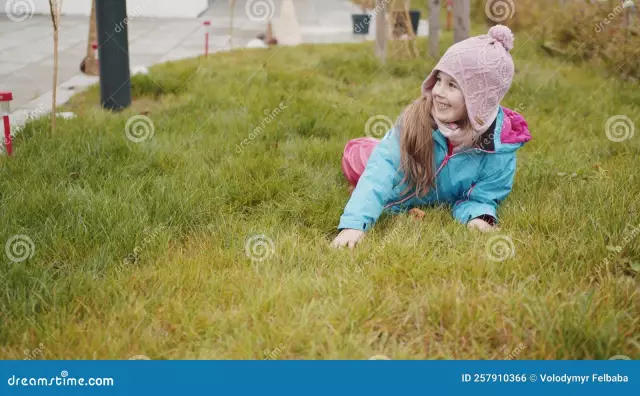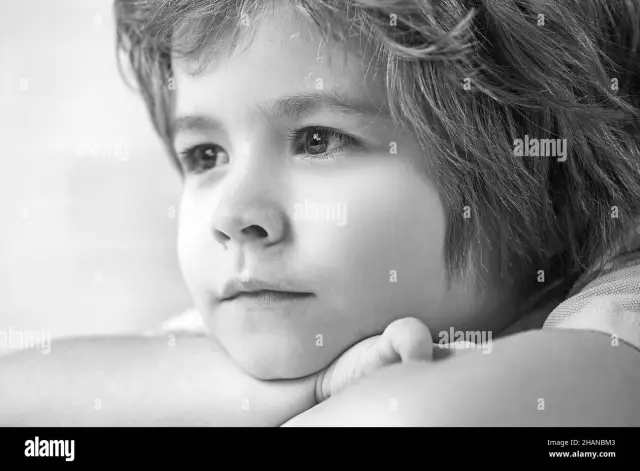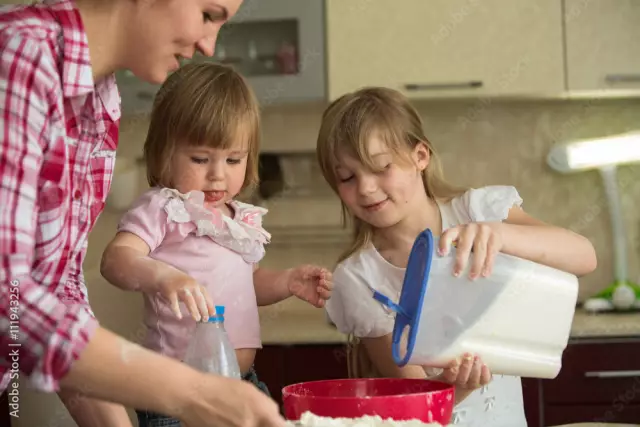- Author Rachel Wainwright wainwright@abchealthonline.com.
- Public 2023-12-15 07:39.
- Last modified 2025-11-02 20:14.
Raising a school-age child

Views on parenting change along with changes in society. At the end of the 20th century, in the countries of the former Soviet Union, the main role in raising a school-age child was assigned to the school. This was due not only to the existing ideology, but also to material difficulties, which is why, in most families, the parents had practically no time to raise their children.
Today the situation has changed a lot, and many parents realize that it is family education that is decisive in the development of a child as a person. However, the role of the school in this process should not be underestimated either, since a school-age child spends most of his time with teachers and peers. In addition to acquiring the necessary knowledge, the role of school in raising a child is to develop the ability to cooperate and foster a sense of tolerance for another person, regardless of his beliefs, abilities and social status.
Difficulties in raising a school-age child
It seems to many parents that the upbringing process ends when the child goes to school, and of all their functions, they reserve the sole responsibility for checking the diary. However, this often leads to many negative consequences when a teenage child withdraws into himself or, on the contrary, begins to show aggression.
In this case, the role of teachers and psychologists in the upbringing of a school-age child increases significantly, since quite a few cases are known when uncontrolled aggression develops into extreme forms and can even lead to human casualties. Therefore, quite often it is teachers who draw parents' attention to the shortcomings in raising children.
Also, the Internet and modern technologies are making their own adjustments in the upbringing of a school-age child. On the one hand, on the Internet you can find the necessary knowledge and many opportunities for self-education. On the other hand, children in most cases prefer to spend time on social networks, replacing live human communication with virtual acquaintances and entertainment.
In addition to the mental disorders that Internet addiction causes, there are a host of health problems associated with low physical activity. In this regard, the efforts of parents and teachers should be united to promote a healthy lifestyle. Children need to be offered an interesting alternative in the form of various circles and sports sections. For its part, the school should also strengthen its role by showing the benefits of friendly behavior and healthy lifestyles.
The role of the school in raising a child
A school is not just an institution in which children receive a narrow range of necessary knowledge, but a kind of social institution where children learn to interact with their peers and adults, thereby preparing for adult life.
The role of the teacher changes depending on the child's age. Parents usually pay special attention to the choice of the first teacher. In elementary school, it is of great importance not only how well the teacher presents the material, but also how easily the child will adapt to the school process and the team.
It is very important, especially during this period, that the methods of raising a child of primary school age, adopted in the family and the preschool educational institution, do not contradict the school approach. This is the time of the greatest excitement and close attention from parents to the learning process.
In high school, it is usually almost impossible to influence the choice of teachers. Therefore, parents can only hope that the teaching staff is able to fully engage in the upbringing of a school-age child.
School, being a part of society, reflects and concentrates in itself all the positive and negative experience accumulated in it. Therefore, often the claims of many parents to the quality of teaching and the relationship in school between teachers and students, although they are justified, cannot be fully taken into account.
If, when raising a child of primary school age, problems of relationships between peers arise extremely rarely, then in adolescence they can be quite pronounced.
One of the important problems that arises in ordinary public schools is the simultaneous education of children from different social groups. Usually, problems arise between children who have communication skills and a sufficient culture of behavior, and children from disadvantaged families, who have to learn all this at school.
Many components are embedded in the concept of a dysfunctional family. These are single-parent families, families in which one of the parents is an alcoholic, as well as families in which the existing relationship is far from harmonious. The unkempt appearance of children from such families often contributes to the aggravation of the conflict.
Therefore, the help of a psychologist is often needed when raising a school-age child. At the same time, it is equally necessary for both children from disadvantaged families and children who have a negative attitude towards those who are below them in social status or level of intelligence.

Quite often, the role of the school is not limited to raising a child, but it becomes necessary to work with parents who either cannot cope with raising their children on their own, or simply do not pay them the necessary attention, shifting all responsibility to school teachers.
Therefore, a very important role is assigned to the teacher, who will be able to create comfortable relationships in the classroom, which will serve not only good learning, but also the mental health of children.
It is necessary that in the hustle and bustle of school days, the teacher, regardless of social status and academic performance, could discern the deep potential of each personality. The upbringing process is quite long and requires patience and dedication from both teachers and parents. But without these efforts, as a rule, a child will grow up unadapted to modern life, which, in addition to knowledge, makes demands on tolerance and the ability to communicate.
Found a mistake in the text? Select it and press Ctrl + Enter.






